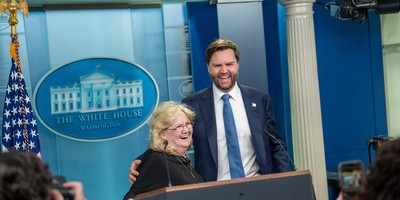The FBI said the delay was justified under the "public safety" exception to Miranda v. Arizona, the 1966 ruling in which the Supreme Court said the now-familiar warnings are required to enforce the Fifth Amendment's guarantee against compelled self-incrimination. But the public-safety exception itself is not justified, which becomes clear when you consider the 1984 decision that announced it.
New York v. Quarles involved a late-night confrontation between police and a suspected rapist at an A&P supermarket in Queens, N.Y. Officer Frank Kraft chased Benjamin Quarles into the back of the store, losing sight of him briefly before stopping, handcuffing and frisking him. Discovering an empty shoulder holster, Kraft asked where the gun was. "The gun is over there," Quarles said, nodding toward a box where Kraft found a .38-caliber revolver.
When Quarles was tried for criminal possession of a weapon, the judge excluded the gun and Quarles' statements about it from evidence because Kraft began questioning him before he had been Mirandized. Both the Appellate Division and the New York Court of Appeals (the state's highest court) upheld that decision.
The Supreme Court said all three courts had erred. "Under the circumstances involved in this case," Justice William Rehnquist wrote for the majority, "overriding considerations of public safety justify the officer's failure to provide Miranda warnings before he asked questions devoted to locating the abandoned weapon."
Recommended
Rehnquist claimed Quarles' hidden gun posed two possible threats: "An accomplice might make use of it," or "a customer or employee might later come upon it." But as dissenting Justice Thurgood Marshall noted, there was no indication that Quarles had an accomplice, and the supermarket was deserted except for the clerks at the checkout counter. Had the police simply searched for the gun, they would have found it easily.
When Kraft asked about the gun, Quarles was handcuffed and surrounded by four officers, who felt safe enough to holster their weapons. "Nothing suggests that any of the officers was by that time concerned for his own physical safety," the Court of Appeals concluded. "There is no evidence in the record before us that there were exigent circumstances posing a risk to the public safety."
The public-safety exception discovered by the Supreme Court not only did not fit the facts of the case. It did not jibe with the logic of Miranda, which said statements by arrestees should be presumed to be compelled in the absence of a warning about the right to remain silent because police custody is inherently coercive, as illustrated by cases in which suspects are exonerated after confessing.
But that insight remains true even in situations involving real threats to public safety, which brings us back to Tsarnaev. While it was plausible that he might have information about imminent threats such as unexploded bombs, that possibility did not make his circumstances any less coercive.
Even without a public-safety exception, Miranda did not bar the FBI from interrogating Tsarnaev before he had been read his rights; it said only that statements obtained through such questioning could not be used to prosecute him -- not much of a problem in a case like this one, where there is abundant evidence that does not hinge on whatever Tsarnaev may have told the FBI before Monday morning. Interrogators are even free to venture beyond immediate threats in an effort to "collect valuable and timely intelligence," which a 2010 FBI memo says may be appropriate in "exceptional cases." They just have to weigh that priority against the desire to obtain statements that will be admissible in court.
Does the need to consider the Fifth Amendment implications of such questioning make it harder for law enforcement officials to do their jobs? Yes, but civil liberties tend to do that.
























Join the conversation as a VIP Member